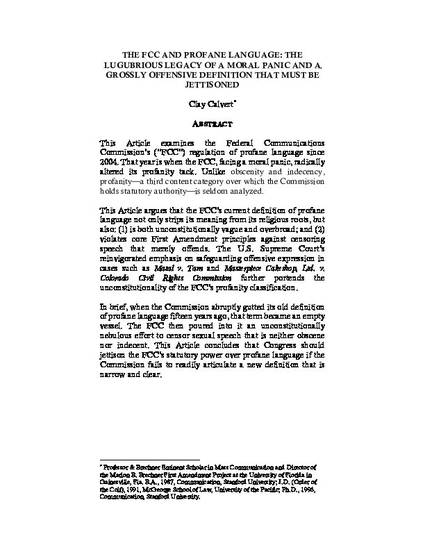
This Article examines the Federal Communications Commission’s (“FCC”) regulation of profane language since 2004. That year is when the FCC, facing a moral panic, radically altered its profanity tack. Unlike obscenity and indecency, profanity—a third content category over which the Commission holds statutory authority—is seldom analyzed.
This Article argues that the FCC’s current definition of profane language not only strips its meaning from its religious roots, but also: (1) is both unconstitutionally vague and overbroad; and (2) violates core First Amendment principles against censoring speech that merely offends. The U.S. Supreme Court’s reinvigorated emphasis on safeguarding offensive expression in cases such as Matal v. Tam and Masterpiece Cakeshop, Ltd. v. Colorado Civil Rights Commission further portends the unconstitutionality of the FCC’s profanity classification.
In brief, when the Commission abruptly gutted its old definition of profane language fifteen years ago, that term became an empty vessel. The FCC then poured into it an unconstitutionally nebulous effort to censor sexual speech that is neither obscene nor indecent. This Article concludes that Congress should jettison the FCC’s statutory power over profane language if the Commission fails to readily articulate a new definition that is narrow and clear. *
